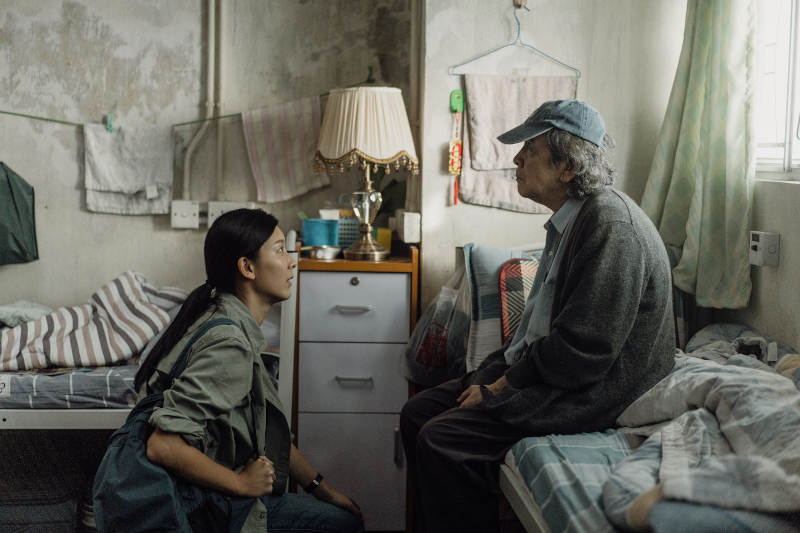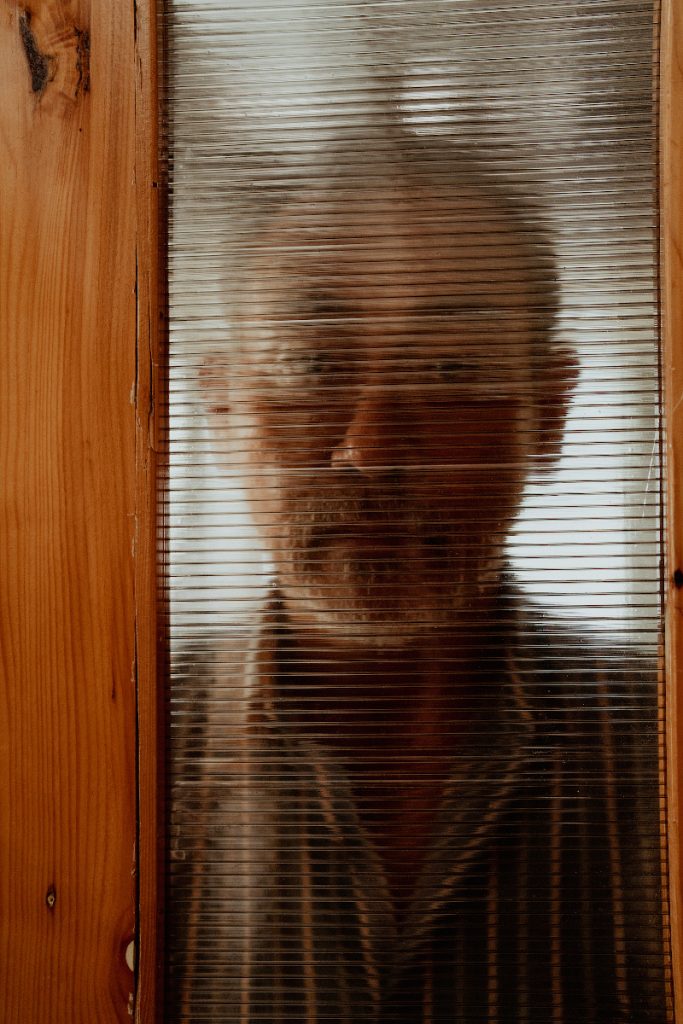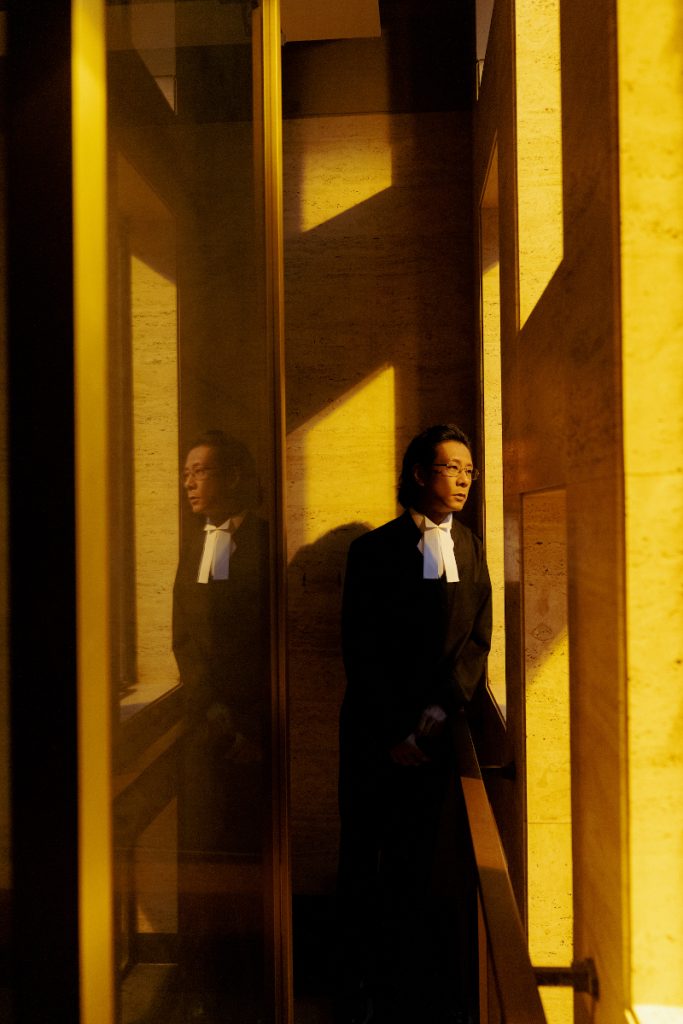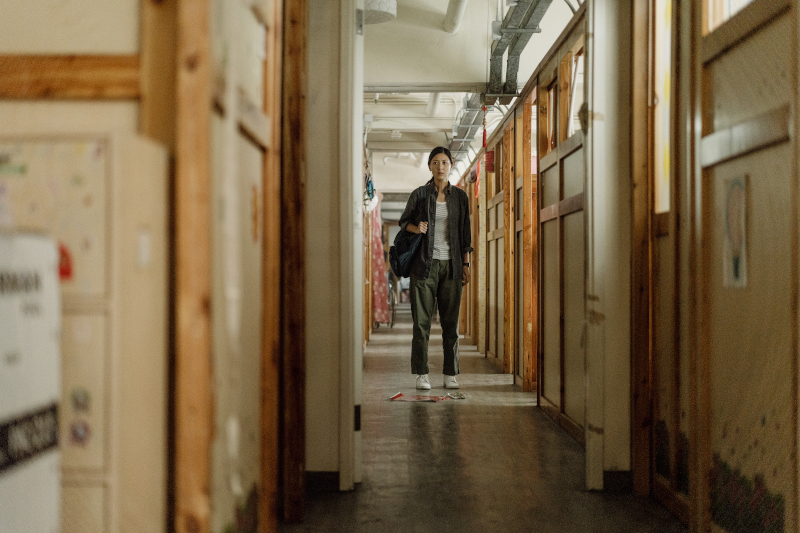Director – Lawrence Kwan Chun Kan – 2023 – Hong Kong – Cert. 15 – 106m
***1/2
A woman uncovers a catalogue of abuse visited upon the residents of the Hong Kong care home in which her grandfather lives – out in UK cinemas on Friday, January 19th
This opens and closes to the strains of ‘We’ll Meet Again’ and images of Hong Kong buildings reaching towards the sky.
Ling Hu Kay (Jennifer Wu from The Shadows, Glenn Chan, 2020; Tracey, Li Jun, 2018) enters the Rainbow Bridge Care Home in search of her grandfather Chow Kin-Tong (David Chiang from Election, Johnnie To, 2005; The Adventurers, Ringo Lam, 1995; Once Upon a Time in China II, Tsui Hark, 1992; Yes, Madam!, Corey Yuen, 1985; Shaolin Temple, Chang Cheh, Wu Ma, 1976) who she hasn’t visited for a while as she’s been abroad in Canada. He doesn’t remember her. Chow’s roommate is the amiable Shui (Woo Fung). Shocked at finding a dead rat in their room, she finds the manager Cheung Kim-wah (a memorable Bowie Lam The Crossing, 2014; Hard Boiled, 1992, both John Woo) who informs her both that while they are always understaffed, the place is like a family where everyone pitches in. Which doesn’t explain why Sam (Peter Charm Man Chan from Let It Ghost, Wong Hoi, 2022), who does the cooking, is taking some of the food and selling it for personal gain to a local shop.

Rainbow Bridge caters for a wide variety of clients, not only the elderly but also the disabled and those with learning difficulties – people with particular needs who require looking after, but who their families or the wider society would like to hide somewhere out of sight so that they don’t have to think about them. Perhaps the most noticeable is the happy, giggling Missy, real name Ling (Rachel Leung from A Light Never Goes Out, Anastasia Tsang, 2022), an adult woman with learning difficulties who effectively has the mind of a six-year-old.
Aside from the manager, there are only two nursing staff for around eighty residents, a woefully inadequate staffing level. Head nurse Chan Mei-Fong (Baby Bo), confusingly referred to as Fong, is a sadist who gets the residents to cooperate by hitting them until they do so, one of those types attracted to looking after vulnerable people because they can do what they want to them without fear of reprisal. In the course of the somewhat episodic narrative, we see her use a staple gun on one resident’s arm and, outside in a small courtyard, use garden hoses to wash down a large group of patients en masse, some of them tied to their wheelchairs. Her number two Ms. Ho (Mimi Kung Chi-Yan, also from A Light Never Goes Out; plus Journey to the West TV series, 1996; Encounters of the Spooky Kind, Sammo Hung, 1980), who genuinely cares for the residents, is upset by the system and its flawed personnel, and is thinking of getting out.
While its heart may be in the right place in terms of exposing institutional wrongdoing, the movie seems to delight in dredging up such horrors to serve them as spectacle. It also seems determined to have its cake – or rather its ice cream – and eat it, because following scenes where Missy is lured into manager Cheung’s office with tubs of the stuff, the door closes, and a struggle is indicted by shadows on the door’s frosted glass – as if to say, staging the spectacle of sex abuse would be too offensive, but showing stapling of an arm or hosing down vulnerable people on the screen is absolutely fine. That doesn’t stop the film from showing Cheung tying up Ling’s fellow inmate and friend Ming (Henick Chou, also from A Light Never Goes Out) and incarcerating him in a store room, resulting in the latter’s despairing, suicidal jump from the room’s upper storey window.

To muddy the water further, manager Cheung is himself presented as disabled – he’s vision impaired, so has to hold books and papers close to his eyes to read them. This is spelled out verbally in the court case towards the end, where it becomes apparent that not only does the State, in the form of Hong Kong’s SWD (Social Welfare Department), adopt a disastrous laissez-faire approach which fosters all manner of mismanagement and abuse through Hong Kong’s care home system, it’s also incapable – as personified by Prosecutor Poon (Pak Hon Chu from My Prince Edward, Norris Wong, 2109; Master Cheng, Mika Kaurismäki, 2019) – of sentencing people preying on those with learning difficulties who are unable to supply coherent testimonies in a court of law; consequently, such offenders go unpunished and reoffend over and over, or so the story’s thesis here goes.

What is not immediately obvious for the first 20 minutes or so unless you’ve read a synopsis or a review that gives the game away…
– *** SPOILER ALERT re the remainder of this review *** –
…is that Kay is not, in fact, Kin-Tong’s granddaughter but rather an investigative journalist. That places the film alongside any number of films about investigative journalism (All The Presidents’ Men, Alan J. Pakula, 1970; Spotlight, Tom McCarthy, 2015; The Post, Steven Spielberg, 2017), with stock characters including a grizzled, seen it all before editor Eric (Chu Pak Him), Kay’s colleague Leung (Leung Chung-hang) and naive young intern Jess (actress’ Romanised name unknown), who still believes journalism can effect beneficial social change.
Indeed, the mass hosing of residents incident is filmed on her phone by Kay in her attempt to supply the ‘hard evidence’ her editor informs her her story is lacking, without which he is not prepared to publish it. Similarly, Shui gives her his own phone with instructions to ‘play’ a video he hopes will get manager Cheung convicted as a sex offender once and for all.
The big difference between this aspect of the film and all those American investigative journalist dramas is that the newspaper industry here is dying on its feet, with Kay’s editor telling her her job isn’t likely to be around in a few years’ time. This could be taken to be a comment on the international, digital media revolution, which is slowly but surely killing print journalism, but given China’s increasingly authoritarian attitude to Hong Kong’s former Crown colony since the 1997 handover it could just as easily be a veiled comment on the territory’s increasing undermining of civil liberties and political freedom.
Either way, there’s also a bleak sense here – again perhaps related to China’s creeping stifling of dissent in Hong Kong – that publishing a news story, even if executed with the highest standards of journalistic integrity by all concerned, doesn’t ultimately effect social change because no-one is even remotely interested in doing anything once the story is out in the public domain and the initial media furore has died down.
Indeed, the final scenes feature – following the closure of Rainbow Bridge in the wake of the court case – Kay encountering the home’s residents outside its closed premises in the rain, as they wait for a coach to take them to a new, presumably equally unsuitable, care home. Like much else here, the scene trades on shock value; you’re never really sure how much of this “true story” is grounded in fact, and how much has been inflated for the purposes of producing compelling entertainment. It lacks the bite of mental health drama Mad World (Wong Chun, 2016). However, overly episodic nature aside, In Broad Daylight certainly holds the attention.
The film’s producer is the prolific Derek Yee.
In Broad Daylight is out in cinemas in the UK on Friday, January 19th, following its screening in London East Asia Film Festival (LEAFF) 2023.
Trailer:
